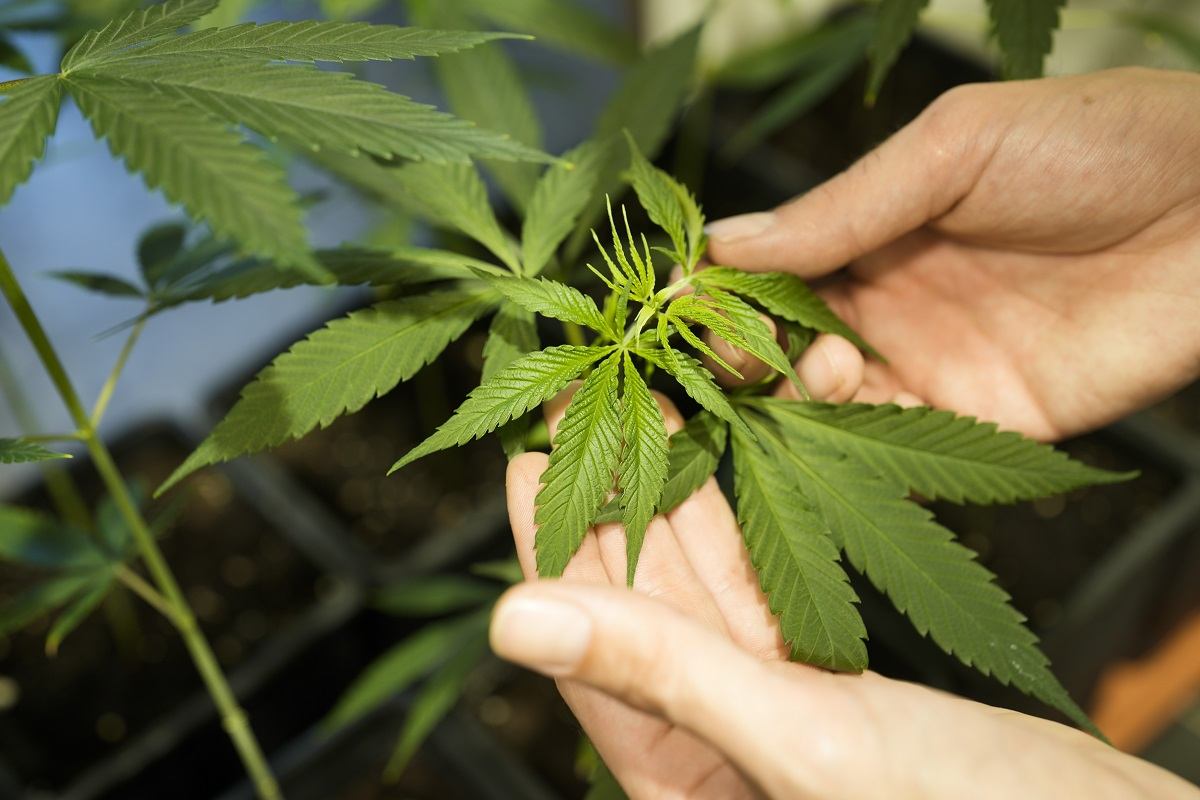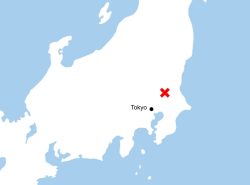Germany’s Cabinet Approves a Plan to Liberalize Rules on Cannabis Possession and Sale

An employee shows a growing cannabis or hemp plant in a box at the Cannabis Museum in Berlin, Germany, Tuesday, Aug. 15, 2023.
11:11 JST, August 17, 2023
BERLIN (AP) — Germany’s Cabinet on Wednesday approved a plan to liberalize rules on cannabis, setting the scene for the European Union’s most populous nation to decriminalize possession of limited amounts and allow members of “cannabis clubs” to buy the substance for recreational purposes.
The legislation is billed as the first step in a two-part plan and still needs approval by parliament. But the government’s approval is a stride forward for a prominent reform project of Chancellor Olaf Scholz’s socially liberal coalition, though significantly short of its original ambitions.
The bill, which the government hopes will take effect at the end of this year, foresees legalizing possession of up to 25 grams (nearly 1 ounce) of cannabis for recreational purposes and allowing individuals to grow up to three plants on their own.
German residents who are 18 and older would be allowed to join nonprofit “cannabis clubs” with a maximum 500 members each. The clubs would be allowed to grow cannabis for members’ personal consumption.
Individuals would be allowed to buy up to 25 grams per day, or a maximum 50 grams per month — a figure limited to 30 grams for under-21s. Membership in multiple clubs would not be allowed. The clubs’ costs would be covered by membership fees, which would be staggered according to how much cannabis members use.
The government plans a ban on advertising or sponsoring cannabis, and the clubs and consumption won’t be allowed within 200 meters (656 feet) of schools, playgrounds and sports facilities, or near cannabis club premises.
Officials hope their plan will help protect consumers against contaminated products and reduce drug-related crime. Health Minister Karl Lauterbach said he expects the system to produce “very competitive” prices, “so we think that we can push back the black market well with these rules.”
At present, “we have rising consumption, problematic consumption,” Lauterbach told reporters. “It simply couldn’t have carried on like this.”
The center-right opposition argues the government is pressing ahead with legalizing a risky drug despite European legal obstacles and expert opinion. An organization representing German judges says the plan is likely to increase rather than decrease the burden on the judicial system and could even increase demand for black-market cannabis.
Some advocates of legalization aren’t happy either.
“What we’re getting from the health minister is overregulation, a continued stigmatization of cannabis users and a much too tight regulatory corset, which simply makes it impossible for many, many (cannabis clubs) to work,” said Oliver Waack-Jürgensen, who heads the Berlin-based High Ground “cannabis social club” founded last year. He is also on the board of a national association representing such clubs.
Lauterbach rejected the objections.
“The fact that it’s being attacked from both sides is a good sign,” the minister said. He added that “approval with much more liberalization, like for example in Holland or some American states, would have led to consumption expanding,” and that those who oppose any legalization “have no answer” to rising consumption and crime, and a burgeoning black market.
The legislation is to be accompanied by a campaign meant to sensitize young people to the risks of consuming cannabis.
The government says it plans to follow the new legislation by mapping out a second step — five-year tests of regulated commercial supply chains in select regions, which would then be scientifically evaluated.
That’s far short of its original plan last year, which foresaw allowing the sale of cannabis to adults across the country at licensed outlets. It was scaled back following talks with the EU’s executive commission.
Approaches elsewhere in Europe vary. The Netherlands combines decriminalization with little market regulation.
Dutch authorities tolerate the sale and consumption of small amounts of the substance at so-called coffeeshops but producing and selling large amounts of it, necessary to keep the coffeeshops supplied, remains illegal. Amsterdam, long a magnet for tourists wanting to smoke weed, has been cracking down on coffeeshops.
The Dutch government, meanwhile, has launched an experiment it says aims to “determine whether and how controlled cannabis can be legally supplied to coffeeshops and what the effects of this would be.”
In Switzerland, authorities last year cleared the way for a pilot project allowing a few hundred people in Basel to buy cannabis from pharmacies for recreational purposes. The Czech government has been working on a plan similar to Germany’s to allow sales and recreational use of cannabis, which isn’t finalized.
Denmark’s capital, Copenhagen, has proposed legalizing weed but has has been turned down by parliament. France has no plans to liberalize its strict cannabis rules.
"News Services" POPULAR ARTICLE
-

American Playwright Jeremy O. Harris Arrested in Japan on Alleged Drug Smuggling
-

Japan’s Nikkei Stock Average as JGB Yields, Yen Rise on Rate-Hike Bets
-

Japan’s Nikkei Stock Average Licks Wounds after Selloff Sparked by BOJ Hike Bets (UPDATE 1)
-

Japanese Bond Yields Zoom, Stocks Slide as Rate Hike Looms
-

Japan’s Nikkei Stock Average Buoyed by Stable Yen; SoftBank’s Slide Caps Gains (UPDATE 1)
JN ACCESS RANKING
-

Keidanren Chairman Yoshinobu Tsutsui Visits Kashiwazaki-Kariwa Nuclear Power Plant; Inspects New Emergency Safety System
-

Imports of Rare Earths from China Facing Delays, May Be Caused by Deterioration of Japan-China Relations
-

University of Tokyo Professor Discusses Japanese Economic Security in Interview Ahead of Forum
-

Japan Pulls out of Vietnam Nuclear Project, Complicating Hanoi’s Power Plans
-

Govt Aims to Expand NISA Program Lineup, Abolish Age Restriction























